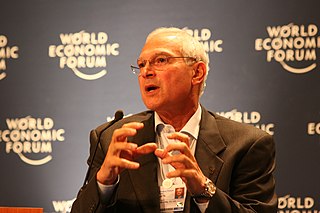A Quote by Sara Gideon
As Speaker, I passed Maine's most aggressive carbon emission reduction and renewable energy standards, and in the Senate, I will prioritize moving toward a completely clean and renewable energy system.
Related Quotes
But to truly transform our economy, protect our security, and save our planet from the ravages of climate change, we need to ultimately make clean, renewable energy the profitable kind of energy. So I ask this Congress to send me legislation that places a market-based cap on carbon pollution and drives the production of more renewable energy in America.
Setting an aggressive enough carbon-reduction goal will result in an appropriate price for carbon and will help many a renewable technology. Consumer education will help. Most importantly, though, will be the continually declining cost trajectory of the real breakthrough in clean-technology costs driven by research and innovation. In the end, private capital is the real barometer of change.
The UK still has time to accelerate the take-up of renewable energy and put the nation on a path towards clean energy that is cheaper, stable and more sustainable. We have a stark choice: We can stay stuck in the last century's boom and bust approach to our economy in the way we consume energy and resources, or create a sustainable, stable and renewable energy infrastructure with the long term environmental and employment benefits that ensue
The sooner we switch away from carbon-based fuel and start relying on renewable energy sources available in the United States, the sooner we will grow our economy by creating the millions of new jobs that will come from retrofitting homes and businesses, building smart grids, renewable energy systems and planting trees and all the rest. We need to create a lot of jobs that can't be outsourced.
































